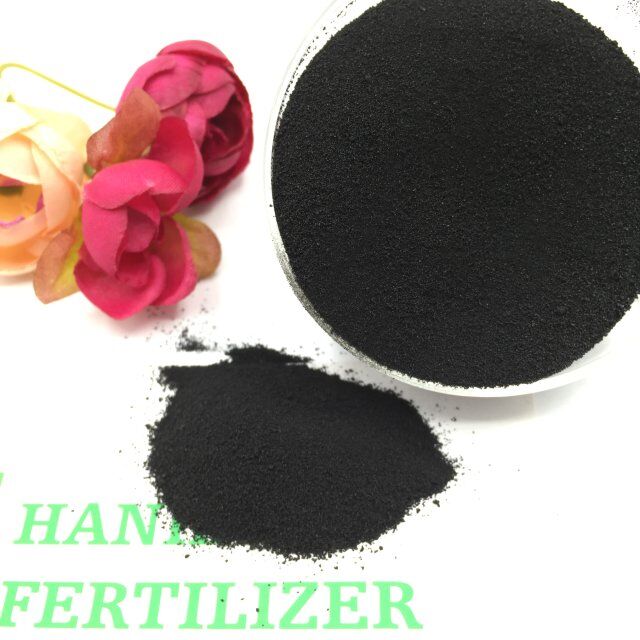
Oct . 07, 2024 15:25 Back to list
humate fertilizer
The Benefits of Humate Fertilizer for Sustainable Agriculture
In recent years, the agricultural sector has increasingly turned to sustainable practices to meet the growing food demands of a rapidly expanding global population. One such method gaining popularity is the use of humate fertilizer. Derived from humic substances, humate fertilizers are rich organic materials that offer numerous benefits for soil health and plant growth. This article will explore the advantages of humate fertilizers and their critical role in promoting sustainable agriculture.
What is Humate Fertilizer?
Humate fertilizers are concentrated organic substances that come from the decomposition of plant and animal materials over thousands of years. They are primarily composed of humic acid, fulvic acid, and humin. These compounds enrich the soil by improving its structure, enhancing nutrient availability, and promoting microbial activity. As a result, humate fertilizers are increasingly recognized as valuable soil amendments in both organic and conventional farming systems.
Enhancing Soil Health
One of the primary benefits of humate fertilizers is their ability to improve soil health. Humates act as natural soil conditioners, enhancing soil structure and aeration. They help bind soil particles together, creating aggregates that improve water retention and drainage. This property is particularly beneficial in drought-prone areas, where healthy soil can retain moisture longer, ultimately supporting plant health.
Additionally, humates increase the cation exchange capacity (CEC) of the soil, allowing it to hold onto essential nutrients like potassium, calcium, and magnesium more effectively. This increased nutrient retention reduces the need for synthetic fertilizers, minimizing chemical runoff and its associated environmental impacts.
Promoting Plant Growth
humate fertilizer

Humate fertilizers not only enhance soil health but also stimulate plant growth. The humic components in these fertilizers facilitate the availability of nutrients to plants by chelating (binding) minerals and making them more accessible. This is particularly important in soils that are deficient in essential nutrients, as humates can help correct imbalances and promote healthy plant development.
Moreover, humate fertilizers are known to stimulate root growth, leading to increased absorption of water and nutrients. Stronger root systems can enhance a plant's resilience to stressors such as drought, pest attacks, and diseases. This resilience is crucial for maintaining crop yields and ensuring food security in the face of climatic challenges.
Encouraging Microbial Activity
Another vital benefit of humate fertilizers is their positive impact on soil microbial activity. Healthy microbial populations are essential for nutrient cycling, organic matter decomposition, and overall soil health. Humates provide a source of energy for beneficial microbes, promoting their growth and activity. This symbiotic relationship between humates and soil microbes enhances the bioavailability of nutrients and improves soil fertility.
Furthermore, increased microbial activity contributes to the suppression of soil-borne pathogens, providing an additional line of defense for crops. This natural form of pest and disease management is a cornerstone of sustainable agriculture, reducing reliance on chemical pesticides and promoting a healthier ecosystem.
Conclusion
In conclusion, humate fertilizers represent a powerful tool for sustainable agriculture. Their ability to enhance soil health, promote plant growth, and encourage microbial activity makes them an invaluable asset for farmers seeking to adopt eco-friendly practices. As the agricultural sector continues to confront the challenges of climate change, soil degradation, and growing food demands, the adoption of humate fertilizers can lead to more resilient, productive, and sustainable farming systems. By integrating humates into agricultural practices, farmers can not only improve their yields but also contribute to the long-term health of our planet.
-
Premium Amino Acid Fertilizer | Rapid Plant Growth Booster
NewsJul.31,2025
-
10 10 10 Fertilizer Organic—Balanced NPK for All Plants
NewsJul.30,2025
-
Premium 10 10 10 Fertilizer Organic for Balanced Plant Growth
NewsJul.29,2025
-
Premium 10 10 10 Fertilizer Organic for Balanced Plant Growth
NewsJul.29,2025
-
Premium 10 10 10 Fertilizer Organic for Balanced Plant Growth
NewsJul.29,2025
-
50 Pound Bags of 13-13-13 Fertilizer for All Plants – Bulk & Organic Options
NewsJul.28,2025
